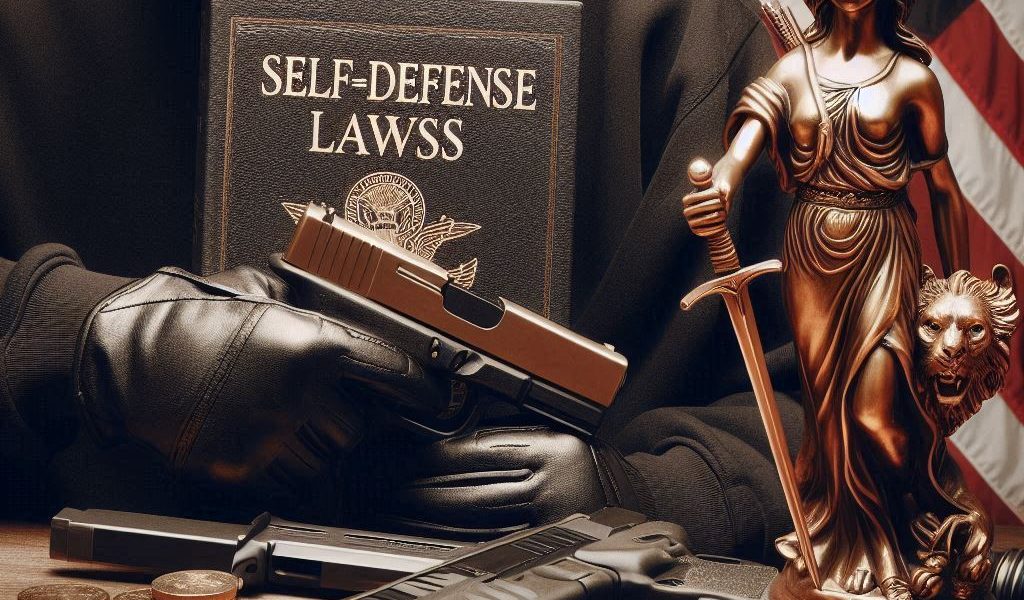Introduction
Self-defense is a fundamental right that allows individuals to protect themselves from harm. However, the legality of self-defense depends on specific laws and circumstances. Understanding self-defense laws can help individuals know when they can legally protect themselves without facing criminal liability.
This article explores self-defense laws, key legal principles, the Castle Doctrine, Stand Your Ground laws, and legal consequences of using force in self-defense.
1. What is Self-Defense?
Self-defense is the use of reasonable force to protect oneself, others, or property from an imminent threat of harm. While self-defense is a legal right, its application is subject to specific conditions under criminal law.
Key Legal Elements of Self-Defense
- Imminent Threat – The threat must be immediate and real.
- Proportional Force – The force used must be necessary and proportionate to the threat.
- Duty to Retreat (Varies by State) – In some jurisdictions, individuals must attempt to retreat before using force.
- Reasonable Belief – The person must reasonably believe they are in danger.
2. Types of Self-Defense Laws
Self-defense laws vary by state but generally fall into three categories:
A. The Castle Doctrine
The Castle Doctrine allows individuals to use force, including deadly force, to protect themselves within their homes. This doctrine is based on the idea that “a person’s home is their castle” and they should not have to retreat when faced with an intruder.
Key Features:
- Applies to homes, and in some cases, vehicles and workplaces.
- No duty to retreat before using force.
- Deadly force is justified if the intruder poses an imminent threat.
B. Stand Your Ground Laws
Stand Your Ground laws extend the Castle Doctrine beyond the home, allowing individuals to use force in public places without a duty to retreat.
Key Features:
- No obligation to retreat before using force.
- Applies to public spaces where an individual has a legal right to be.
- Requires a reasonable belief of imminent harm.
C. Duty to Retreat Laws
Some states require individuals to attempt to retreat before using force in self-defense. This means that deadly force can only be used when there is no safe way to escape the threat.
3. When Can You Legally Use Self-Defense?
A. Against Physical Assault
If someone physically attacks you, self-defense laws generally allow you to use reasonable force to stop the attack. Deadly force is only justified if you reasonably believe your life is in danger.
B. Against Home Invasion
Under the Castle Doctrine, homeowners can use deadly force if an intruder unlawfully enters their home and poses a threat.
C. Against Threats to Others (Defense of Others)
Self-defense laws often extend to protecting others. If you witness someone facing an imminent threat, you may use reasonable force to defend them, provided it meets legal requirements.
D. Against Property Crimes
Using deadly force solely to protect property is generally not allowed. However, non-lethal force may be used to prevent theft or vandalism.
4. Legal Consequences of Using Self-Defense
While self-defense is legally justified in many situations, using force improperly can lead to criminal charges. Courts will evaluate factors such as:
- Necessity of Force: Was the force necessary to stop the threat?
- Proportionality: Was the force excessive?
- Imminence of Threat: Was the danger immediate or avoidable?
If the court determines that the use of force was unjustified, the individual may face charges like assault, manslaughter, or murder.
5. How to Prove Self-Defense in Court
To successfully claim self-defense, the accused must prove:
- They faced an imminent threat of harm.
- They used proportional force.
- They acted reasonably and in good faith.
Evidence such as witness testimony, surveillance footage, medical reports, and police records can help support a self-defense claim.
6. How to Protect Yourself Legally
To avoid legal complications when using self-defense:
- Understand your state’s self-defense laws.
- Call the police immediately after an incident.
- Avoid using excessive force.
- Consult a lawyer if you face legal action.
Conclusion
Self-defense laws provide legal protection when individuals face imminent threats. However, these laws vary by state and require reasonable and proportional force to be legally justified. Knowing your rights and responsibilities can help you make informed decisions in critical situations while avoiding legal consequences.




